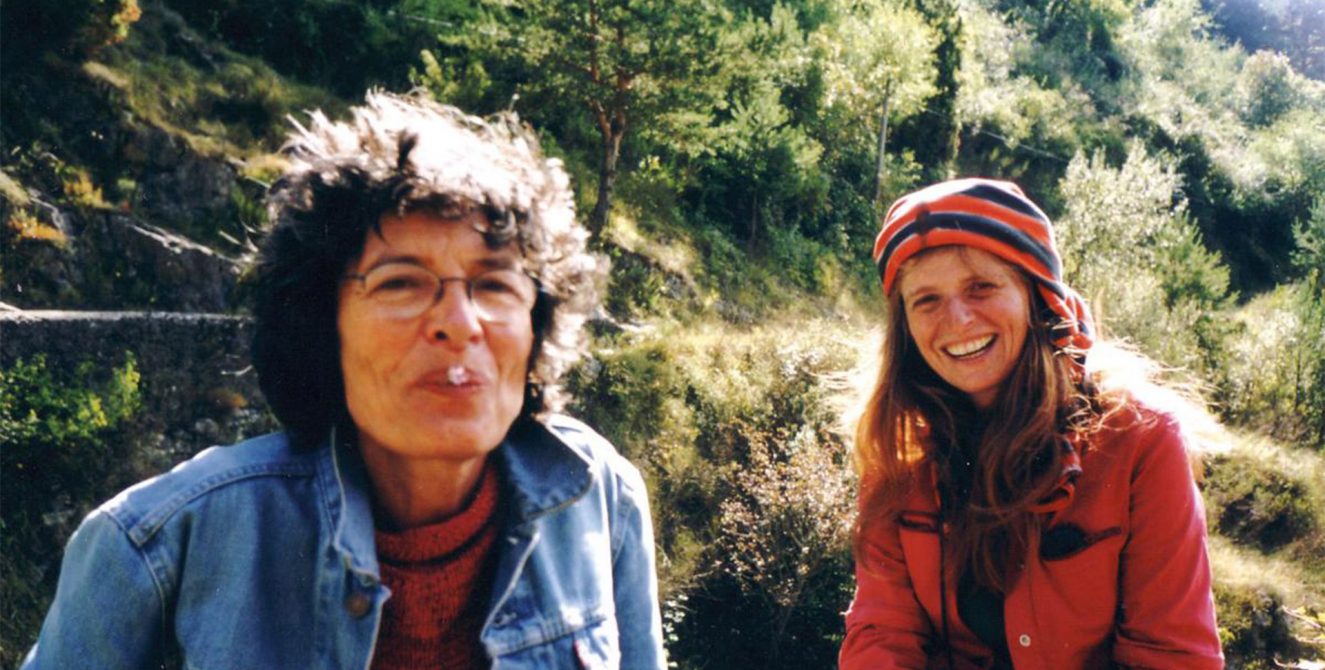Tell Me: Women Filmmakers, Women’s Stories: Mimi
2003, 105 Minutes, 35mm
France

Director: Claire Simon
Programmed by Nellie Killian as a part of Tell Me: Women Filmmakers, Women’s Stories.
Set on a series of long walks through the streets of Nice and the mountain village of Saorge, Mimi charts the psychogeography of the filmmaker’s long time friend Mimi Chiola. Simon allows her subject to guide the conversation, pulling the viewer into Mimi’s discursive, enveloping stories of love, sex, work, life and friendship.
“Mimi isn’t a star, she’s just someone. I wanted to make a film about her life. That is, about the life of… someone. I wanted to follow as closely as possible the singularity of a real life in order to encounter its own particular romance, fantasy. Things that I’d discover when filming. In Nice, her hometown, or in the mountains, drifting between familiar and unfamiliar places where I filmed her, I waited for this story as yet unknown to me to come back to Mimi and for her to recount the scenes that make up her personal novel.” — Claire Simon
“The tension between present and past remains palpable throughout Simon’s film. The sea’s glimmering water, the beauty of lush, green hills, and Mimi’s steady storytelling — her calm, reassuring presence — clash with the anguish of her childhood stories, suggesting psychological alienation.” — Ela Bittencourt, Hyperallergic
“Mimi is quite the euphoric trip down memory lane, and of all of Claire Simon’s films at True/False it proves that a life fully lived is an exceptional life, and not the other way around.” — Glenn Heath Jr., MUBI’s Notebook
Tell Me: Women Filmmakers, Women’s Stories celebrates female filmmakers who took the simple, radical step of allowing women space and time to talk about their lives. Working in idioms from cinema verite to essay film to agitprop, the assembled films all share a startling intimacy between camera and subject. Whether through the bonds of shared experience, or merely genuine interest, these portraits capture women talking about trauma and sexual identity; summoning new language to describe the long simmering injustices and frustrations we still face today; making jokes; admitting insecurities; and organizing for the future.
“‘Tell Me’ repositions the history of women filmmakers as one of ‘startling intimacy,’ as Killian writes, between filmmaker and her subject – an implicit (but marked) divergence from the position such ‘personal films’ have occupied in the feminist-film theorist’s canon, where cinema made in the male-dominated lineages of Structural, materialist and avant-garde film of the past 70 years received the bulk of critical attention. In ‘Tell Me’, Killian presents an array of practices and strategies that have defined the under-known aspects of women’s cinema, including the newsreel and the intimate portrait, cinema-vérité and realism, formal experimentation and autobiography.” — Corina Copp, Frieze
